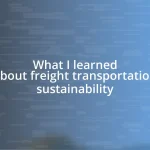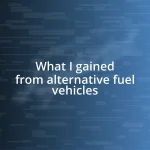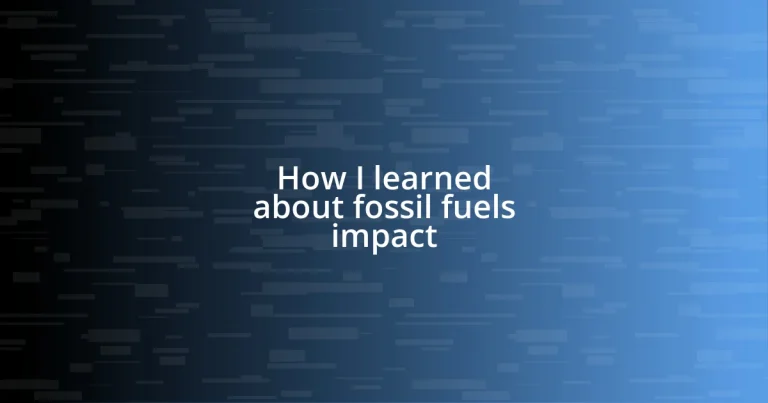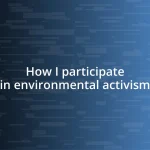Key takeaways:
- Fossil fuels, while powering modern life, contribute significantly to climate change and environmental degradation, prompting a need for cleaner energy alternatives.
- The extraction of fossil fuels leads to economic benefits such as job creation but also results in serious social and health issues, creating divisions within communities.
- The dependence on fossil fuels affects global economic stability and exacerbates energy poverty, highlighting the need for a shift towards renewable energy and equitable growth.
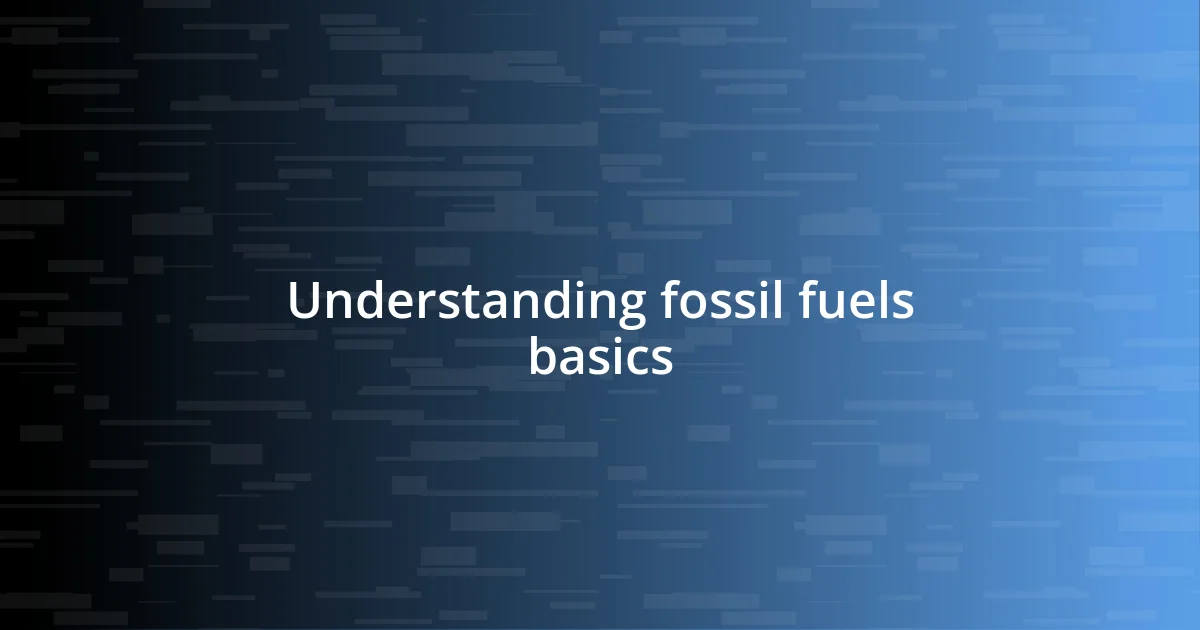
Understanding fossil fuels basics
Fossil fuels, primarily coal, oil, and natural gas, are formed from the decomposed remains of ancient plants and animals buried under layers of earth for millions of years. I remember the first time I saw a diagram illustrating this process; it struck me how something so lifeless could fuel our vibrant lives today. Isn’t it fascinating that the very energy driving our modern world was once part of a thriving ecosystem?
When I started digging deeper into fossil fuels, I learned that they release energy when burned, but this energy comes at a cost to our environment. I often find myself reflecting on the duality of fossil fuels; they power our cars and heat our homes, yet they also contribute significantly to climate change. How do we reconcile this need for energy with our responsibility to protect the planet?
It’s mind-boggling to consider that fossil fuels account for around 80% of the world’s energy consumption. I sometimes wonder, what does this mean for future generations? As I explored renewable energy options, I couldn’t help but feel a sense of urgency and hope. Understanding the basics of fossil fuels helps frame the conversation about moving toward cleaner alternatives, doesn’t it?
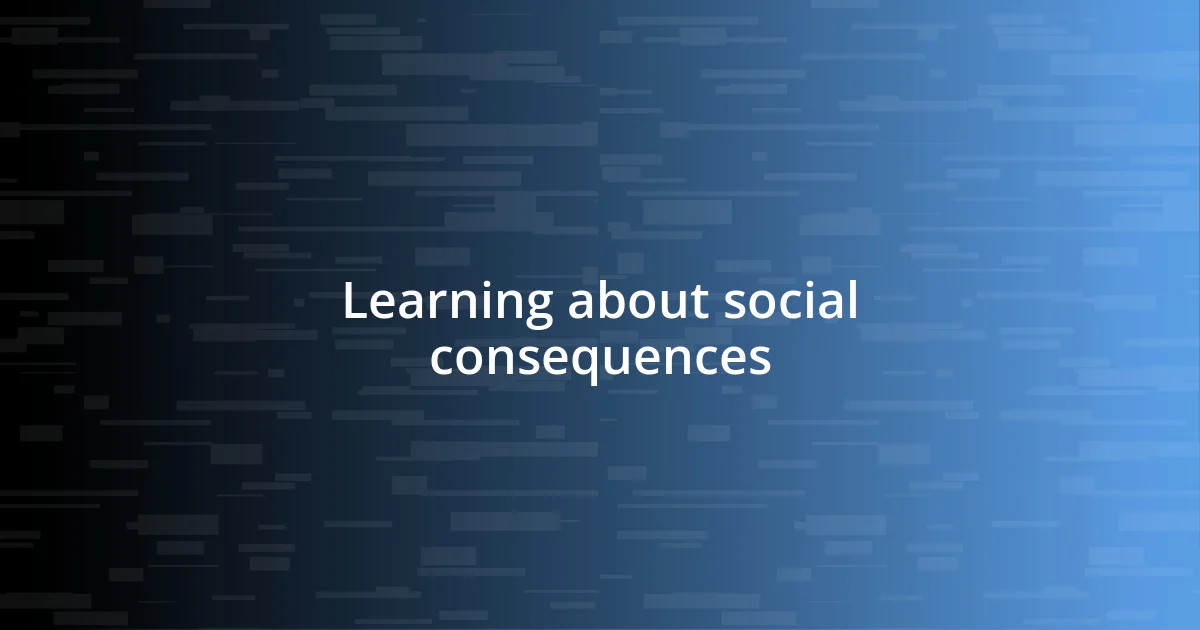
Learning about social consequences
Learning about the social consequences of fossil fuels has been an eye-opening journey for me. I recall a time when I attended a community meeting focused on the effects of oil drilling in our region. Hearing the personal stories from families affected by health issues due to pollution was deeply moving. These discussions made me realize how fossil fuel extraction can disrupt not just the environment, but also the fabric of communities.
As I continued my exploration, I was struck by the stark contrast between economic benefits and social costs. For instance, jobs created in fossil fuel industries can uplift communities, but the environmental degradation can lead to long-term consequences such as displacement and health problems. It’s a complex balance, and I often find myself wondering how we can prioritize both community well-being and energy needs effectively.
In my own neighborhood, I’ve seen firsthand how fossil fuel reliance creates divisions among residents. Some are drawn to the economic gains, while others advocate for sustainable practices to protect our health and environment. This division has led to heated debates, making me appreciate the social dynamics tied to our energy choices. How do we foster dialogue in our communities to cohesively address these pressing issues?
| Positive Effects | Negative Effects |
|---|---|
| Job Creation | Health Risks |
| Economic Growth | Environmental Degradation |
| Energy Access | Community Displacement |
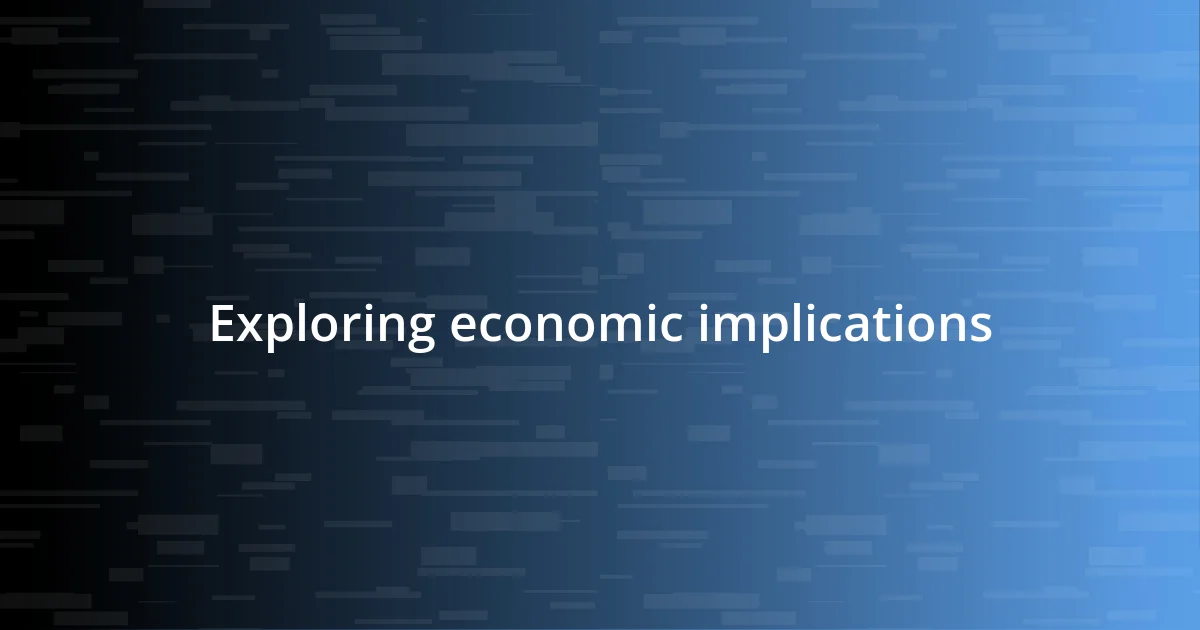
Exploring economic implications
I’ve often been astounded by how deeply intertwined fossil fuels are with our global economy. Take my experience attending an energy policy seminar; the speaker highlighted how fluctuations in oil prices ripple through various sectors, influencing everything from grocery bills to housing markets. This interconnectedness made me question: how resilient is our economy if we continue to depend heavily on such volatile resources?
Reflecting on conversations with friends in the renewable energy sector, I’ve witnessed a growing frustration around fossil fuel subsidies. It seems almost ironic that money spent propping up traditional energy sources could instead be funneled into developing clean alternatives. The potential for innovation and job creation in renewables is enormous, and I wonder, what might our job landscape look like if we shifted our investments?
Then, there’s the issue of energy poverty that lingers in my mind. While some regions thrive off fossil fuel wealth, others struggle with inaccessibility to basic energy needs. I remember visiting a small town heavily reliant on coal, where conversations revolved around the struggle to keep the lights on. How do we ensure that economic growth from fossil fuels doesn’t leave the most vulnerable behind? It’s a pressing concern that resonates deeply with me, as it highlights the delicate balance of progress and equity.




